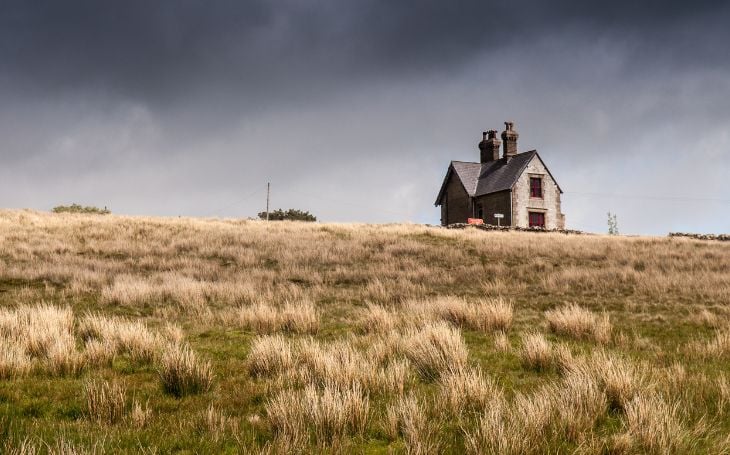 This month’s indices on property market data is suggesting that it’s “all quiet on the financial and property front”, and it’s likely things will stay like this, possibly to the end of the year. That is unless inflation takes a dive and enables Bank Base Rates to fall further.
This month’s indices on property market data is suggesting that it’s “all quiet on the financial and property front”, and it’s likely things will stay like this, possibly to the end of the year. That is unless inflation takes a dive and enables Bank Base Rates to fall further.
According to a government paper, things might get worse before they get better and in “August 2025, the Bank of England said it expects CPI inflation to peak at 4.0% in September.” And the rest of the report states that “the average forecast among economists surveyed by the Treasury in September 2025 was for inflation to be 3.6% in Q4 2025.”
The next bit of ‘excitement’ is what happens in the budget, or for now, what is reported that might happen in the budget that influences the property market!
Some are saying that buyers and sellers are already holding back fearful of increased taxation, but I tend to find that people that move in the Autumn really want to move and move in by Christmas if they can, so if people are being scared off, they are also the ones likely to ‘change their mind’ and pull out of deals. So at least the current buyers and sellers are likely to be committed to moving.
Summary of the latest property market indices headlines

Property index wise, changes are pretty static too, with all showing small increases – bar E.surv. The key thing to note is that property prices this year are very much rising at a lower rate than inflation and, as I’ve been pointing out for some months now.
Different areas are, of course, performing differently, with our cities Index showing some, such as Belfast, Glasgow and Newcastle, recording property prices up by 7 to 12% and areas such as Brighton and Hove, Cambridge and Norwich still 6-7% lower than they were in 2022.
Property price and market indices headlines
Annual price fall driven by south, which could be harder hit by rumoured property taxes
“The average price of property coming to the market for sale rises by 0.4% (+£1,517) this month to £370,257. However, average new seller asking prices are now 0.1% below this time last year following several months of muted price growth.”
Sales market activity continues to slow
“House prices drift lower at the aggregate level.”
Annual house price growth softens in August
“Annual house price growth softened to 2.1% in August.”
House prices continue to rise at a steady pace
“House prices increased by +0.3% in August, marking a third consecutive monthly rise.”
Housing market is finely balanced for time being
“Prices in most areas of England and Wales have softened a little recently.”
A steady summer for house prices
“House price growth has stabilised at 1.3% year on year, with average prices now £270,600.”
Summary of the insights from this month’s indices
– Rightmove’s real-time data shows no immediate reaction from movers to property tax rumours. However, jitters around what could happen in the Autumn Budget risk slowing the parts of the market that are already underperforming.
– Ahead of the September Bank Rate decision, it’s over a year since the first Bank Rate cut for four years in August 2024. Since then, Rightmove’s Mortgage Tracker shows the average two-year fixed mortgage rate has reduced from 5.03% to 4.52%.
– However, the number of sales being agreed is 4% ahead of this time last year. In the south of England, it is still up by 3% year-on-year, while it’s up by 5% across the rest of Great Britain.
– The dip in annual prices is driven by London and the south, as the south underperforms the rest of Great Britain.
– Competitive pricing is even more vital in the south. The number of homes for sale in the south is up by 9% on 2024, compared with 2% elsewhere, and it takes an average of five days longer to find a buyer.
– In London, more than half (59%) of agreed property sales so far this year have been over £500,000 and would be subject to the speculated new tax replacing stamp duty, versus an average of 22% outside London.
– House prices were down 0.1% month on month.
– Over half of properties in the owner occupier sector are classified as ‘underoccupied’.
– Average property price now £299,331, edging up to a new record high.
– Annual rate of growth eases slightly to +2.2% (down from +2.5% in July).
– Average price paid by first-time buyers falls slightly as affordability improves.
– Activity and prices potentially vulnerable to any bad news.
– Uncertainty over the future path of interest rates and prospective fiscal measures in the November Budget cast their shadow.
 = Properties that require price reductions take 2.4 times longer to sell than those that don’t.
= Properties that require price reductions take 2.4 times longer to sell than those that don’t.
– Possible tax changes are speculated to impact homes valued over £500,000, which is a third of homes for sale.
– Sales agreed are up 5% on last year, but buyers have more choice with stock levels 10% higher.

